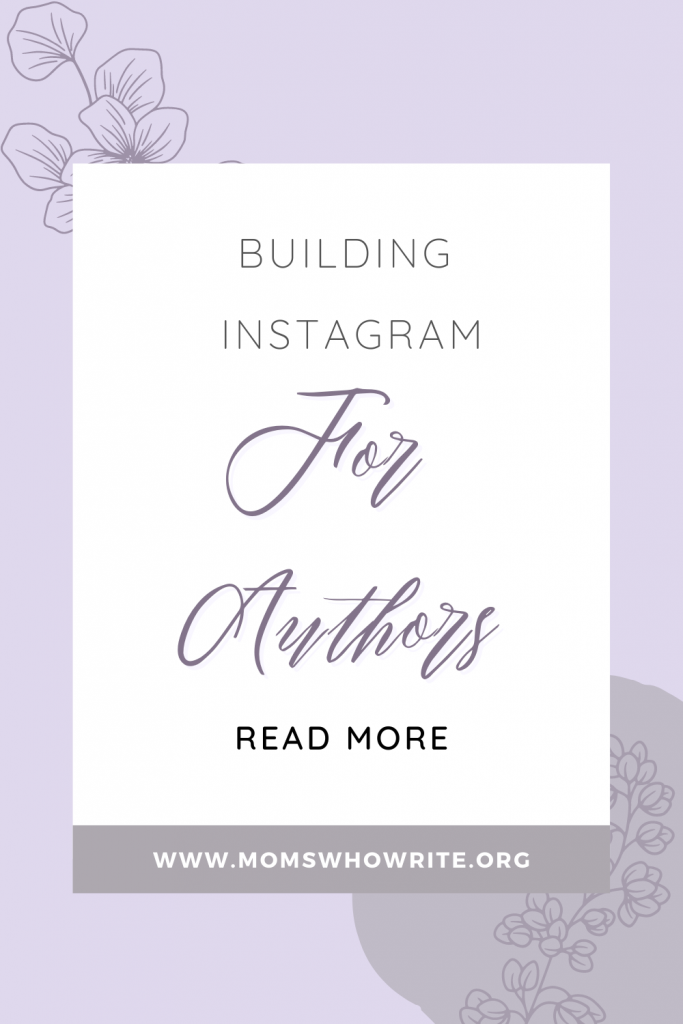Instagram for authors can be a powerful tool for marketing and promoting your books. Between reels and stories and ads and your general feed, there are endless opportunities to get your story out there. So many, in fact, you may not know where to focus.
Social media is overwhelming. Straight up. If you’re anything like me, the idea of writing a book was so intense that I didn’t think much past completing the project. But what happens when the book is written?
The reality is that you need to have some sort of online presence. There are a hundred ways to do this well, and it should be explained right now that there is no “correct” answer. The goal here will be to lay out some approaches and ideas and help you decide how this can work for you. Here are some thoughts on building Instagram for authors.
Forget your follower count
The first thing that people ask when they start to think about Instagram is “How do I get people to follow me?” This is the wrong question. The question should be “How can I connect with my potential audience?”
Who is your potential audience? They are the people that would potentially enjoy your book. Don’t say “I want everyone to read my book,” because a) that isn’t true and b) it’s not helpful. When you think about your potential readers, who are they? Let’s take a look at my last book, for example.
My last poetry collection was intensely personal, centered around deconstructing my life in my 30s. It dealt with motherhood and friendships and self-image and all of the hard things that we start to question when we have children and come into marriage and careers and motherhood. My audience was, essentially, me. When I broke down my target audience, I was able to create a profile: Women in their 20s-40s who were working moms and lived in the US.
I centered my social media content around them. I created content that would interest people who wanted to read about the things in my book. It didn’t bother me if my analytics showed that I was losing male followers or that my European audience was low. I was reaching the audience I was writing to, the ones who would connect personally over my poetry.
In short, stop obsessing over follower counts. The question should be “How do I create content that will attract my potential audience?”
The “branding” question
Branding is not a color scheme. It is not a logo. Branding is what you want to be remembered for.
This means that you need to create images, words, and stories that will represent you and your work. Your content should be representative of your message and should always appeal to your target audience. If you’re a romance author, for example, you can create a profile for a romance reader. Here’s an interesting breakdown from RWA.
In summary, the average romance reader is straight, female, and between the ages of 35–39 years old. There are a lot of other interesting demographics in that report. If you have a niche within romance, adjust accordingly. Your fantasy romance is not going to draw in the same crowd as a contemporary rom-com. There could be some overlap but remember: your goal is not to market to everyone.
Consider the interests, the commonalities, and the demographics of your audience. Create content that would be interesting to your audience, and do it consistently.
The algorithm question
I’m not a fan of algorithm chasing. It tends to be short-sighted and teaches users to focus on short-term returns instead of longevity.
Things you should do instead of chasing the algorithm:
- Post consistently.
- Create strong content.
- Engage with your audience and get to know them.
Social marketers will tell you that your video should be a certain length or you should use certain Sounds. They’ll tell you to post more Reels or focus on an aesthetic or hashtags.
Some of this can help. Maybe it will, maybe it won’t.
The thing is, if you follow all the rules and your content is still low quality or not authentic to who you are as an author, it isn’t going to work. Do your best work. Create something that represents you, and do it consistently. Quality, consistency, and authenticity are what you should be chasing.
But what should I post?
Don’t just spam people with your book.
I know. It’s a marketing tool and you feel like that’s what you should talk about. Yes, you should highlight your work and your process. Yes, you should talk about book launches and progress. Should this be all you talk about? Absolutely not.
The most successful accounts find ways to engage their readers. They discuss their passions, their lives. Colleen Hoover, for example, is wildly successful on social media. She shares her life, her family, and things she finds funny or important. And she’s sold millions of books on social media. She’s present on Stories every day, and she shares posts to let people know she’s watching. She gives away books, she does surprise signings, and she finds ways to give back.
What doesn’t she do?
Chase trends. Worry about posting Reels or things she doesn’t like. She shows up in a way that is authentic, and people like her as much as they like her books.

Instagram for authors who don’t have a book
You should be building your platform long before you release your book. The short story is that you have an opportunity to get people invested in your story and your journey from the beginning. Here are some posting ideas for when you don’t have a book:
- Snippets from your current project
- Information about things that you relate to your book. Writing romance? Talk about romance books you’re reading. Horror? October is your time to shine.
- Talk about your writing journey. Are you proud of finishing your first draft? Sending your book off to editors? Learning things from the querying process? Share your knowledge! Make the process transparent.
- Write short form work. Articles, blog posts, poetry. Whatever works for you! Submit to other sites, write on your own site, and share on your social.
- Things you find interesting. Passionate about nature? Animals? Food? People in your audience are too. Find common ground.
Your audience wants to get to know you. Not just your book. Most likely, not your book at all.
Instagram for authors: A summary
Social media is an important part of marketing and promotion as an author, but it is not the be-all-end-all. Decide what you want to be remembered for, and then create content that serves that purpose. The follow trains and trend-chasing are short-sighted.
Focus on quality. Focus on engagement with the audience you’re reaching. Stop obsessing over numbers and trends if you hate them. All of that will come and go, but a dedicated readership that will follow you wherever you go should be the goal.
About the Writer: Allie Gravitt is a mom of 4 and lives in metro Atlanta with a house full of animals and plants. Her debut poetry collection, prisonbreaks, and second collection Killing Ghosts are available now on Amazon. Follow Allie’s writing journey on TikTok and Instagram.

1 thought on “Instagram for Authors: How to focus on what matters”